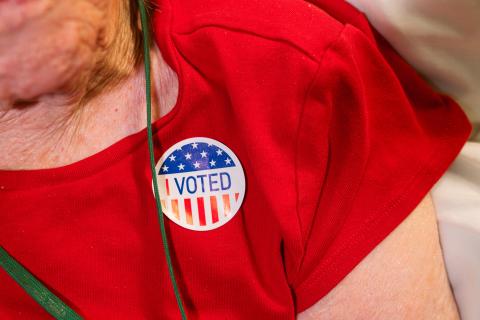Voting from Long-Term Care
The right to vote is preserved under the U.S. Constitution and various federal laws, regardless of one’s living situation. The Americans with Disabilities Act (ADA) and the Help America Vote Act (HAVA) ensure that all eligible individuals, regardless of disability or living conditions, have access to voting. These provisions make it clear: living in a nursing home does not strip one of their civic rights.
Long-term care residents represent a group that can provide insights into healthcare, senior services, and retirement policies—areas likely to be directly affected by legislative changes. By voting, they ensure that their specific needs and perspectives are considered by those in power. Moreover, it reinforces the idea that these residents are an important part of the community. Participation in democracy is more than fulfilling a civic duty, it’s having a say in how our local governments are run. Voting is a reaffirmation of agency and relevance in society for all, but especially for older adults who are vital contributors to our democratic discourse.
Supporting voting rights in long-term care
The procedure of voting varies depending on state and local laws, but there are general ways that we all can ensure residents of long-term care facilities are able to cast their votes.
Register to vote: First, ensure that registration is up to date. Staff at the facility can assist with this process, or residents can reach out to local election offices who often provide additional help to voters in long-term care.
Understand voting assistance rights: Residents can request assistance in voting due to disability or inability to read or write. This help can come from a person of their choice (other than an employer or union representative) or from facility staff if permitted by state law.
Use absentee ballots: Many residents in long-term care facilities find absentee voting to be the most accessible option. They can vote by mail well ahead of Election Day. Emergency ballots can also be requested if someone is hospitalized unexpectedly. Check with your local election office for details on how to obtain and submit an absentee or emergency ballot.
Seek mobile polling: Some areas offer mobile polling places that come directly to long-term care facilities to facilitate voting. Inquire whether this option is available in your community.
Leverage technology: Some jurisdictions may offer electronic methods to assist voters with disabilities. This can include electronic delivery of ballots to voters who cannot physically handle paper ballots.
Lastly, family members and people working in long-term care need to speak up if they see anyone interfering in a residents’ right to vote or attempting to influence their choices. Disabilities or cognitive impairment do not disqualify someone from voting. Laws about guardianships or power of attorney vary by locale; check www.vote.gov for specifics.
Older adults have the power to influence policies and elect leaders who will fight for their concerns. It’s not just a right; it’s a profound way to continue contributing to and shaping the community. Their vote— and yours—matters. Make it count!
